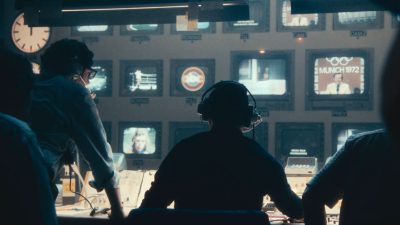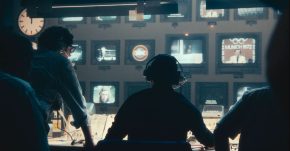Grandiose Baltic melodies
It’s a rare occasion for the audience of Müpa to listen to Baltic music. This year, the CAFe Budapest Contemporary Art Festival starts with the concert of Sinfonietta Riga on the 5th of October, featuring an Estonian conductor. They play four pieces by four different composers who belong to different generations. On behalf of the 100th anniversery of the independence of Estonia and Latvia, the composers and the musicians represents these two countries. We asked the conductor, Erki Pehk.
Sinfonietta Rīga was established by young musicians in 2006 and you happen to belong to the same generation. How did your work with them begin?
In fact, this is my first working contract with them and I am very excited about it, because I consider Sinfonietta Rīga as one of the best, if not the best, chamber orchestras in the Baltic region. Their chief conductor Normunds Sne, who is also an established Latvian oboist, is a great musician and he does an outstanding job with this orchestra. When I offered the idea to celebrate the 100th anniversary of two neighbour countries with the programme of Latvian and Estonian composers-soloists, they immediately agreed. I am honoured and very happy to have this programme presented in the concert in Budapest!
You pursued baroque and classical music studies, and now you conduct works of contemporary composers as well. Do they require a different approach? Is it challenging to change between the styles?
I think every conductor loves to conduct Brahms 4th, so do I, but… Actually, my real passion belongs to “living composers”! I like to discover new music; it is always challenging to interpret something what is completely new, never done before by any other performers. I enjoy the artistic freedom that contemporary music allows me, much more often than the classics. I love work together with composers. Changing styles is a big joy and keeps the conductor “fresh” and forces to work more with his technique and mind, so that he won’t get out of the routine. I guess I am a too much “impatient” person to conduct some piece twenty or a hundred times. That is really unthinkable for me. I always need to go on, that is what makes me happy.
Please provide some personal impressions on the composers and works you will play at CAFe Budapest!
Those four composers who will be presented in the concert come all from different generations. They all are different as composers, but definitely a bit similar too. I can’t really say much about are they “artistic relatives” in their music or not. I do not see it in this way. Nevertheless, I am happy, that in this part of Europe, we have really good composers and the “Baltic trade mark” is really high! Vasks is the grand old master among others and his cello concerto is definitely a masterpiece, a romantic one. Tüür is the established composer from mature generation who has arised among the most played living Estonian composers and his marimba concerto is a great example of his expressive style. Dzenitis has become a valued and popular composer among younger generation of Latvian composers and his short, but powerful and sparkling orchestra piece should hit the audience with full of emotions. Vesik is the “rising star” among young Estonian composers. Her recent achievements as a composer encouraged me to order the new piece for this programme that can be presented together with such great Baltic names. What is very much in common for these four composers is that they all write very well for the orchestra.
You will conduct two compositions that involve soloists. What can the Budapest audience expect from their performance?
I am extremely glad that these two young artists, Kristaps and Heigo, are with us in this concert! They are not only world-class high professionals, but also very magnetic and artistic!
What do you consider the most difficult part of your programme, both technically and from an artistic perspective?
To perform really well is always a difficult job, it definitely won’t come easy, but I believe in the abilities of the orchestra and these soloists. But as a top example Dzenitis’s Euphoria is a really difficult piece to play – especially to get behind the fast musical notation and bring out the right emotions. This programme should be a lovely experience if you are fond of big musical emotions, the power of expressions and even the beauty of the sound!
Interview and translation: Tamás Márok



























Comments